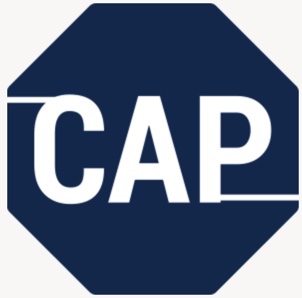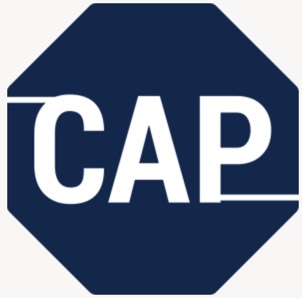Contents
- About ABC
- Eligibility Criteria
- Application Information
- Accreditation Programs
- Accreditation Survey
- Accreditation Survey Process
- Accreditation Decisions
- Accreditation Fees
- Maintaining Your Accreditation
- Complaint Process
- Announcing and Promoting Your Accreditation
- Accreditation Standards and Compliance Tips
- Administrative Standards (AD)
- Human Resources (HR)
- Patient Care and Management (PC)
- Product Safety (PS)
- Patient Records (PR)
- Performance Managementand Improvement (PM)
- Facility Safety and Management (FS)
- Claims and Billing Compliance (CB)
- Resources
- Patient Care Accreditation Pre-Application Checklist
- Additional Resources Just for You
©2026 by the American Board for Certification in Orthotics, Prosthetics & Pedorthics, Inc. All rights reserved.
No part of this document may be produced in any form without written permission of the American Board for Certification in Orthotics, Prosthetics & Pedorthics, Inc.
Patient Care Facility Accreditation Guide
November 2025
Claims and Billing Compliance (CB)
The Claims and Billing Compliance Standards are designed to support your organization’s compliance with billing guidelines set by the Centers for Medicare and Medicaid Services and the Office of the Inspector General (OIG). Depending upon the size of your business and scope of services provided, your business is expected to develop a compliance program that encompasses the spirit of the OIG’s Compliance Program Guidance for the Durable Medical Equipment, Prosthetics, Orthotics and Supply Industry.
The Standards parallel the five critical elements presented in the OIG’s Guidance:
1. Your business adopts a claims and billing compliance program based upon formal policies and procedures. The compliance program should be based upon processes that clearly guide your business in preventing inappropriate billing.
2. A qualified and trained individual is responsible for maintaining the compliance program. You must assure that a designated person oversees a consistently administered program.
3. Appropriate staff is properly trained and educated on claims development and billing procedures. Training assures that employees are provided with the information necessary to competently manage claims processes and minimizes opportunities for improper claims to be submitted.
4. Auditing and monitoring mechanisms are implemented to ensure consistent compliance. An ongoing monitoring mechanism not only ensures that the compliance program is followed; it will also help identify those elements of the program that may need improvement.
5. Written employment criteria and disciplinary guidelines are implemented. You must demonstrate that you carefully screen potential employees that will be responsible for billing practices and that you administer reasonable disciplinary measures for inappropriate billing activities. These Standards are designed to reflect the elements of the OIG’s compliance guidance and require facilities to establish procedures to minimize the occurrence of fraud and abuse and to protect the business from its effects. In addition to claims development and billing compliance, your business must also prevent identity theft by having systems to verify patient identity, report suspicious activity and mitigate the effect of a breach.
CB.1

You must administer a claims and billing compliance program with written policies, procedures and standards that describe your compliance with federal and state policies.
Tip
Many national associations and agencies provide education programs in claims and billing compliance.
CB.2
You must designate a qualified and trained individual to be responsible for maintaining the claims and billing compliance program.
Tip
You must indicate in your policy which specific
staff member is responsible for claims and
billing and document their qualifications and
training with a job description, meeting minutes,
attendance logs, course certificates or in-service
agendas.
CB.3
You must provide claims development and billing education for all staff involved with or responsible for, claims and billing. You must have documentation that you have implemented practices to prevent and control fraud, waste and abuse.
Tip
Your designated staff members must be educated and trained in claims development and billing particular to job duties and responsibilities related to the compliance program. You must document this education with meeting minutes, attendance logs, course certificates or inservice agendas. Use the Billing Education Documentation form in the online Resource Kit to document this information
CB.4
You must establish ongoing file auditing
and monitoring policies and procedures
for clinical and financial records to ensure
consistent compliance with all applicable
federal, state and private payer healthcare
plans.
CB.4.1

You must annually write an evaluation of the results of the file auditing and monitoring compliance program and act on any necessary changes.
Tip
You must have meeting minutes, patient records and/or other documentation to reflect ongoing monitoring and auditing of the claims and billing compliance program. You must have documentation of audit reports and if necessary, the corrective actions you have taken. Use the Billing and Coding Error Report in the online Resource Kit to record your findings.
CB.4.2
You must have written policies and procedures that ensure investigations of suspected or actual noncompliance are handled appropriately and any necessary corrective action is taken.
Tip
You must have a plan that addresses how you conduct internal investigations of suspected noncompliance. This plan should include:
- A time limit for closing an investigation of suspected claims and billing noncompliance
- Options for corrective action after determining that an act of noncompliance has occurred, including disciplinary action, a review of existing policies and procedures and employee training
- An indication of when it would be necessary to conduct a noncompliance investigation by an outside, independent investigator
- An indication of how and when to refer an act of noncompliance to CMS or law enforcement authorities
- An indication of when to report the suspected noncompliance to ABC as required by the Code of Professional Responsibility






